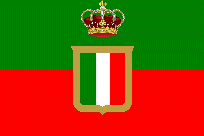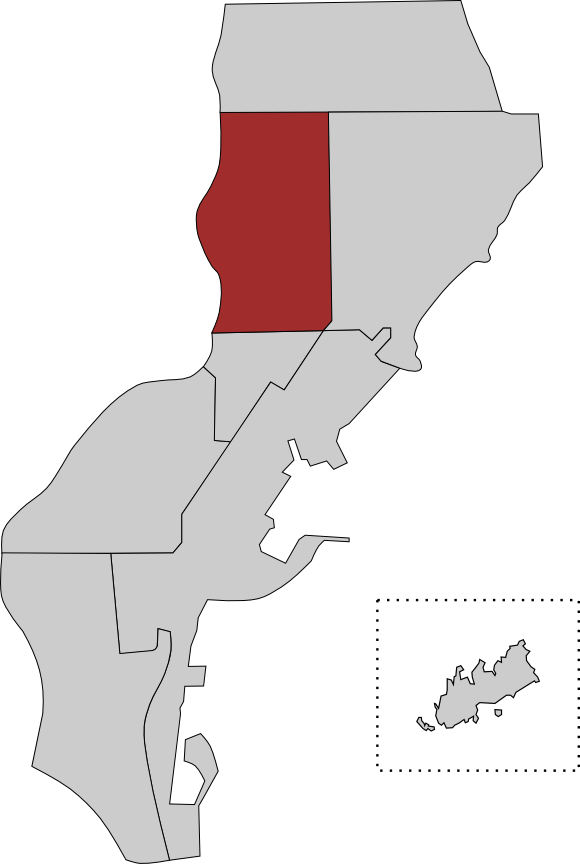Belacostă: Difference between revisions
No edit summary |
mNo edit summary |
||
| Line 12: | Line 12: | ||
Formerly known as Mussolini, the province name was changed following a referendum of its citizens, during which the actions of the Italian dictator of the same name were denounced. The renaming was affirmed at the National level through 38PD1, issued April 26, 2008. The province was granted the right to self-govern during the 39th Cosa with the proclamation of a [[Constitution of Benito|Constitution]] by Viceré Owen Edwards. | Formerly known as Mussolini, the province name was changed following a referendum of its citizens, during which the actions of the Italian dictator of the same name were denounced. The renaming was affirmed at the National level through 38PD1, issued April 26, 2008. The province was granted the right to self-govern during the 39th Cosa with the proclamation of a [[Constitution of Benito|Constitution]] by Viceré Owen Edwards. | ||
== Head of State == | |||
The Head of State is the '''Viceré'''. The Viceré is appointed for an indefinite term by the Monarch to serve as the vice regal representative to the Province. Under the Benitian Constitution, the authority of the Viceré is limited to powers which mimic those of the Monarch at the National level. | The Head of State is the '''Viceré'''. The Viceré is appointed for an indefinite term by the Monarch to serve as the vice regal representative to the Province. Under the Benitian Constitution, the authority of the Viceré is limited to powers which mimic those of the Monarch at the National level. | ||
== Head of Government == | |||
The Head of Government is the Maestro. The Maestro is elected by the members of the Legislative Chancellery, the Benitian legislature. Under the Benitian Constitution, the Maestro can issue legislative proclamations, which are similar to Prime Dictates at the National level. | The Head of Government is the Maestro. The Maestro is elected by the members of the Legislative Chancellery, the Benitian legislature. Under the Benitian Constitution, the Maestro can issue legislative proclamations, which are similar to Prime Dictates at the National level. | ||
== Legislature == | |||
The Legislative authority of the province is vested in the Legislative Chancellery, a unicameral legislature composed of 11 seats held by members, or Chancellors, directly elected during the General Election. Chancellors may be removed from office by legislative force, in limited circumstances, upon being presented with a Writ of Impeachment pursuant to Benitian law. | The Legislative authority of the province is vested in the Legislative Chancellery, a unicameral legislature composed of 11 seats held by members, or Chancellors, directly elected during the General Election. Chancellors may be removed from office by legislative force, in limited circumstances, upon being presented with a Writ of Impeachment pursuant to Benitian law. | ||
| Line 26: | Line 26: | ||
{{prov}} | {{prov}} | ||
Revision as of 21:59, 4 August 2012
Benito
|
| Established: April 17th, 1982/III |
| Cunstaval: Ieremiac'h Ventrutx
|
 Location of Benito. |
The Sovereign Province of Benito is a Province of Talossa.
Formerly known as Mussolini, the province name was changed following a referendum of its citizens, during which the actions of the Italian dictator of the same name were denounced. The renaming was affirmed at the National level through 38PD1, issued April 26, 2008. The province was granted the right to self-govern during the 39th Cosa with the proclamation of a Constitution by Viceré Owen Edwards.
Head of State
The Head of State is the Viceré. The Viceré is appointed for an indefinite term by the Monarch to serve as the vice regal representative to the Province. Under the Benitian Constitution, the authority of the Viceré is limited to powers which mimic those of the Monarch at the National level.
Head of Government
The Head of Government is the Maestro. The Maestro is elected by the members of the Legislative Chancellery, the Benitian legislature. Under the Benitian Constitution, the Maestro can issue legislative proclamations, which are similar to Prime Dictates at the National level.
Legislature
The Legislative authority of the province is vested in the Legislative Chancellery, a unicameral legislature composed of 11 seats held by members, or Chancellors, directly elected during the General Election. Chancellors may be removed from office by legislative force, in limited circumstances, upon being presented with a Writ of Impeachment pursuant to Benitian law.
| The Realm of the Kingdom of Talossa | ||||||||
| Atatürk |
Belacostă |
Cézembre |
Fiovă |
Florencia |
Maricopa |
Maritiimi- Maxhestic |
Vuode |
Péngöpäts |